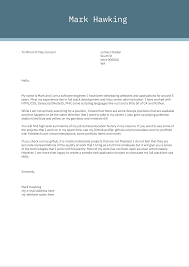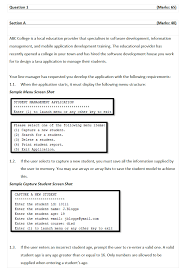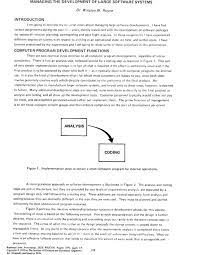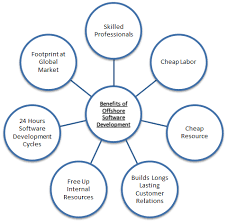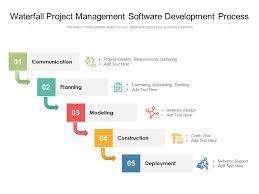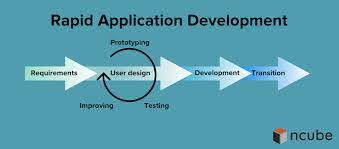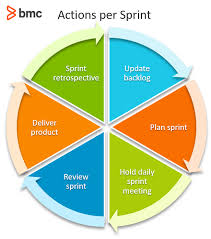The Essential Skills of a Software Programmer: A Guide to Success
The Role of a Software Programmer
Software programmers, also known as software developers or coders, play a crucial role in the creation and maintenance of computer programs. They are the creative minds behind software applications that we use on our computers, smartphones, and other devices.
Responsibilities of a Software Programmer
Software programmers are responsible for writing, testing, and debugging code to create functional software applications. They work closely with software engineers and designers to bring concepts to life through coding. Some key responsibilities of a software programmer include:
- Writing clean, efficient code in various programming languages.
- Collaborating with team members to design and develop software solutions.
- Testing and debugging programs to ensure they function correctly.
- Updating and maintaining existing software applications.
- Keeping up-to-date with industry trends and technologies.
Skills Required
To excel as a software programmer, one needs a combination of technical skills, problem-solving abilities, and creativity. Some essential skills for software programmers include:
- Proficiency in programming languages such as Java, C++, Python, or JavaScript.
- Strong analytical and problem-solving skills.
- Attention to detail and the ability to write clean code.
- Effective communication skills for collaborating with team members.
- Adaptability to learn new languages and technologies quickly.
Career Outlook
The demand for skilled software programmers continues to grow as technology becomes increasingly integrated into various industries. Software programmers can find opportunities in software development companies, tech startups, government agencies, and more. With the right skills and experience, software programmers can advance their careers into roles such as senior developer, technical lead, or even project manager.
Understanding Software Programmers: Roles, Skills, and Career Paths
- What is a software programmer?
- What does a software programmer do?
- What programming languages do software programmers use?
- What skills are important for a software programmer?
- How to become a software programmer?
- What are the responsibilities of a software programmer?
- What career opportunities are available for software programmers?
What is a software programmer?
A software programmer, also known as a software developer, is a professional responsible for writing, testing, and debugging code to create functional software applications. They work closely with software engineers and designers to bring concepts to life through coding. Software programmers possess expertise in various programming languages and are adept at problem-solving and collaborating with team members to develop innovative solutions. Their role is essential in the development and maintenance of computer programs that power the digital world we interact with on a daily basis.
What does a software programmer do?
As a software programmer, the primary role is to design, develop, and maintain computer programs and applications. Software programmers write code in various programming languages to create software solutions that meet specific requirements. They collaborate with team members to analyze user needs, design software systems, and test applications for functionality and efficiency. In essence, a software programmer translates concepts into code, troubleshoots issues, and ensures that the final product meets quality standards.
What programming languages do software programmers use?
Software programmers use a variety of programming languages depending on the specific requirements of the project they are working on. Some commonly used programming languages by software programmers include Java, C++, Python, JavaScript, Ruby, PHP, and C#. Each programming language has its strengths and is chosen based on factors such as project complexity, performance requirements, and compatibility with existing systems. Software programmers often have expertise in multiple languages to adapt to different project needs and stay versatile in the ever-evolving field of software development.
What skills are important for a software programmer?
When considering the skills important for a software programmer, proficiency in programming languages is paramount. A strong grasp of languages like Java, C++, Python, or JavaScript is essential for writing efficient and functional code. Additionally, problem-solving abilities and attention to detail are crucial traits that enable programmers to debug programs effectively and create clean code. Effective communication skills are also valuable for collaborating with team members on software development projects. Lastly, adaptability to learn new languages and technologies quickly ensures that programmers can stay abreast of industry trends and remain competitive in the ever-evolving tech landscape.
How to become a software programmer?
To become a software programmer, individuals typically start by gaining a solid foundation in computer science or a related field through formal education such as a degree in computer science, software engineering, or information technology. It is essential to learn programming languages like Java, C++, Python, or JavaScript and practice coding regularly to build proficiency. Engaging in coding projects, participating in coding competitions, and pursuing internships or entry-level positions in software development can provide valuable hands-on experience. Continuous learning and staying updated with the latest technologies and industry trends are also crucial for aspiring software programmers to succeed in this dynamic field.
What are the responsibilities of a software programmer?
When it comes to the responsibilities of a software programmer, they are tasked with writing, testing, and debugging code to create functional software applications. Collaborating closely with software engineers and designers, software programmers work to bring concepts to life through coding. Their duties include writing clean and efficient code in various programming languages, participating in the design and development of software solutions, ensuring the proper functionality of programs through testing and debugging, updating and maintaining existing software applications, and staying abreast of industry trends and technologies to continuously enhance their skills.
What career opportunities are available for software programmers?
Career opportunities for software programmers are abundant and diverse. Software programmers can explore roles in various industries, including software development companies, tech startups, government agencies, healthcare, finance, and more. With the rapid advancement of technology, software programmers have the opportunity to specialize in areas such as web development, mobile app development, cybersecurity, artificial intelligence, and data science. As they gain experience and expertise in programming languages and technologies, software programmers can progress into roles like senior developer, software architect, technical lead, or project manager. The dynamic nature of the tech industry ensures that software programmers have a wide range of career paths to choose from and opportunities for growth and advancement.




